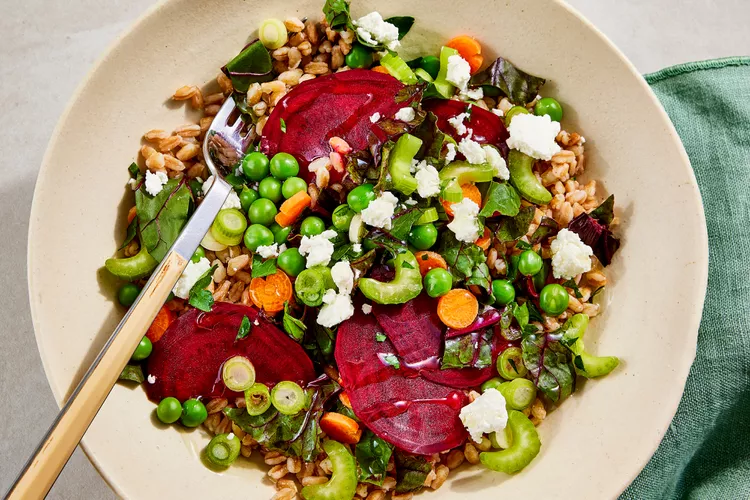- Get link
- X
- Other Apps
JUST IN
- Get link
- X
- Other Apps

Good Source of Magnesium
Many people have heard that fiber and fluid are good for relieving constipation, but did you know that magnesium—a mineral found in green peas—may also help?
“One recent study looked at the diets and bowel habits of 9,519 adults and found that dietary magnesium was inversely associated with constipation. Those with higher dietary magnesium reported less constipation compared to those who consumed less magnesium through their diet,” says Dandrea-Russert, referencing a 2021 study in Food Science & Nutrition. Magnesium may have a laxative effect by pulling water from your body into your stool, improving stool frequency and consistency.
Magnesium supplementation has been shown to relieve constipation for some time now, says Dandrea-Russert, but this is one of the first studies looking at dietary magnesium’s impact on constipation. Its results are promising; however, the study was observational so we can’t be sure that magnesium is what caused reduced constipation rates.
Interestingly, many Americans don’t meet the recommended intakes of magnesium, per the National Institutes of Health. Eating foods like green peas can help you consume more magnesium for overall health and potentially even constipation relief. Each cup of cooked green peas contains an impressive 15% of the DV for magnesium, according to the USDA.
You may be used to having frozen or canned peas as a side dish, and this Quinoa with Peas & Lemon recipe kicks things up a notch.
Other Veggies for Constipation
While green peas are a great source of nutrients that help relieve constipation, they’re not the only veggie that can help you poop. Here are other veggies we recommend to help relieve constipation.
- broccoli. Dandrea-Russert and Maus both recommend broccoli for constipation because it’s very high in fiber—with almost 5 grams per cup cooked, per the USDA—and contains some magnesium.
- Spinach. Cooked spinach is high in magnesium; it has 37% of the DV in a cup, per the USDA. It’s not as high in fiber as broccoli or green peas, but it does have some fiber, about 70% of which is insoluble fiber to help you poop, per Endotext.
- Asparagus. Asparagus is another fluid-filled, fibrous vegetable that can relieve constipation. “Asparagus has 3.6 grams of fiber per cooked cup, most of which is insoluble, helping to increase gastrointestinal transit time. Asparagus also contains prebiotic fiber in the form of inulin, which can contribute to healthy digestion,” Dandrea-Russert says.
- Jerusalem artichoke. Just like asparagus, Jerusalem artichokes are also good sources of inulin, which Hadley says “feeds the gut microbiome, working to prevent constipation in both the short and long term.”

Comments
Post a Comment
Let know your comments